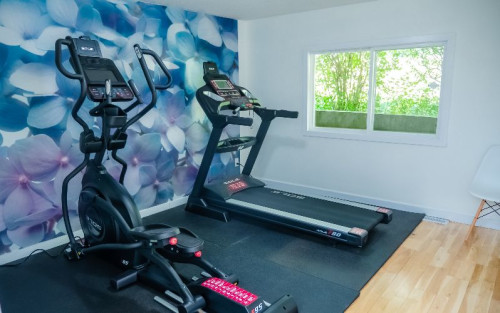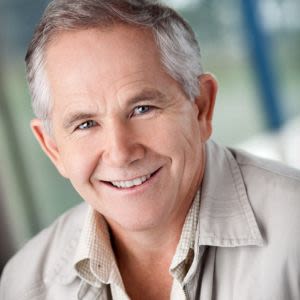








Georgia Strait Womens Clinic
This provider's information has been quality-checked by Recovery.com's Research Team for accuracy and completeness, including center verification through appropriate third-party organizations.
Treatment Focus
You can admit to this center with a primary substance use disorder or a primary mental health condition. You'll receive support each step of the way and individualized care catered to your unique situation and diagnosis.
Primary Level of Care
Offering intensive care with 24/7 monitoring, residential treatment is typically 30 days and can cover multiple levels of care. Length can range from 14 to 90 days typically.
Treatment Focus
You can admit to this center with a primary substance use disorder or a primary mental health condition. You'll receive support each step of the way and individualized care catered to your unique situation and diagnosis.
Primary Level of Care
Offering intensive care with 24/7 monitoring, residential treatment is typically 30 days and can cover multiple levels of care. Length can range from 14 to 90 days typically.
Provider's Policy
At Georgia Strait Womens Clinic, we are dedicated to helping you on your journey to recovery with personalized, compassionate care. We accept all major insurance providers to ensure that you have access to the treatment and support you need without added financial stress.
Georgia Strait Womens Clinic
Georgia Strait Womens Clinic
About Georgia Strait Womens Clinic
After 15 years of helping women with mental health and addiction treatment, Georgia Strait Women's Clinic knows there is a significant need for specialized services for women with mental health, addiction, and trauma issues. They seek to provide specialized addiction and mental health care with a non-12-Step, evidence-based approach. Georgia Strait approaches treatment with strength-based, solutions-focused, and trauma-informed care.
Expert, Empathetic Professionals
Georgia Strait Women's Clinic believes that every client (woman, non-binary, transgender) deserves a highly skilled, compassionate, and curious team of professionals to help them. In their unique setup, Georgia Strait offers the services of a large facility with the privacy and attention found in a smaller one. Their therapists are all masters-level. They additionally have a 24/7 nursing team, a psychiatrist and addictionologist, and a medical doctor who assesses each woman before they begin treatment. Many on Georgia Strait’s team have walked through addiction themselves, placing them in a unique position of unmatched empathy and expert clinical knowledge.
Specialized Programming for Each Woman
Georgia Strait caters to women who have experienced trauma and who have mild to moderate disordered eating. In their unique atmosphere of support and safety, women can work through past traumas and gain the tools they need to flourish. Cell phone and laptop use allow women to stay connected with employers, employees, and family. On-staff nursing and clinical detoxification help keep women safe and comfortable at all stages of their treatment. Georgia Strait’s therapies include cognitive behavioral therapy (CBT), dialectical behavioral therapy (DBT), Hakomi therapy, eye movement desensitization and reprocessing (EMDR) therapy, art therapy, and hypnotherapy. Women join group therapies, 1:1 therapy, and can choose between various psychoeducational workshops when not in therapy.
Private, Restorative Accommodations
Women have their own private, apartment-style suite to call home during treatment. Inside their rooms, women have a small kitchen, seating area, private bathroom, bedroom, and wireless internet. In Georgia Strait’s facility, women can enjoy their gym, yoga studio, group dining room and TV room, laundry facilities, and the quiet nature surrounding their centre. They can bring their pet, too.
Georgia Strait Womens Clinic accepts private insurances. They do not accept provincial or territorial insurances.

Highlights from the Center
Highlights
These highlights are provided by and paid for by the center.
Therapeutic Location
Boutique
Non 12-Step Approach
Women Only
Center Overview
Treatment Focus
You can admit to this center with a primary substance use disorder or a primary mental health condition. You'll receive support each step of the way and individualized care catered to your unique situation and diagnosis.
Recently helped 7 people via Recovery.com

Recently helped 7 people via Recovery.com
Insurance Accepted
Cash Pay Rates
Estimated Cash Pay Rate
Center pricing can vary based on program and length of stay. Contact the center for more information. Recovery.com strives for price transparency so you can make an informed decision.
Recovery.com Verified Listing
Recovery.com verified that the name, location, contact information and license to operate for this treatment provider are valid and up-to-date.

Accredited with Exemplary Standing

Vancouver Coastal Health
Recovery.com is an independent, third-party mental health resource. Verification does not imply endorsement and does not guarantee the quality of treatment services.
Meet your care team

Carissa Muth, Psy.D
Clinical Director
Registered Psychologist

Sara Klinkhamer
Family Services Counsellor
MA, RCC

Jennifer Murray
Nursing Director
RPN

Danielle Foster
Case Manager
RPN

Jacques du Toit
Medical Director
MB, CHB, ISAM

Stuart Howard
Psychiatrist
MD, FRCP (C)




Treatment
Specializations
Co-Occurring Disorders
A person with multiple mental health diagnoses, such as addiction and depression, has co-occurring disorders also called dual diagnosis.
Licensed Primary Mental Health
Some primary care providers offer mental health diagnosis and treatment. This can prevent patients from developing more serious conditions.
Drug Addiction
Drug addiction is the excessive and repetitive use of substances, despite harmful consequences to a person's life, health, and relationships.
Gender-Specific
Separate treatment for men or women can create strong peer connections and remove barriers related to trauma, shame, and gender-specific nuances.
Executives
Executive treatment programs typically directly support the needs of people who manage businesses and may provide flexible schedules and office space to allow work during treatment.
Trauma
Some traumatic events are so disturbing that they cause long-term mental health problems. Those ongoing issues can also be referred to as "trauma."
Alcohol
Using alcohol as a coping mechanism, or drinking excessively throughout the week, signals an alcohol use disorder.
Who We Treat
Veterans
Patients who completed active military duty receive specialized treatment focused on trauma, grief, loss, and finding a new work-life balance.
Young Adults
Emerging adults ages 18-25 receive treatment catered to the unique challenges of early adulthood, like college, risky behaviors, and vocational struggles.
Women only
Women attend treatment in a gender-specific facility, with treatment delivered in a safe, nourishing, and supportive environment for greater comfort.
LGBTQ+
Addiction and mental illnesses in the LGBTQ+ community must be treated with an affirming, safe, and relevant approach, which many centers provide.
Executives
Executive treatment programs typically directly support the needs of people who manage businesses and may provide flexible schedules and office space to allow work during treatment.
Midlife Adults
For adults ages 40+, treatment shifts to focus on the unique challenges, blocks, and risk factors of their age group, and unites peers in a similar community.
Mild Disabilities
Adults with mild physical or intellectual disabilities receive treatment catered to their specific needs in a safe and clinically supportive environment.
Treatment Services
Residential
In a residential rehab program, patients live onsite, with access to daily treatment and 24-hour care. An average stay is 30-90 days.
Outpatient
During outpatient rehab, patients attend a structured treatment program while continuing to live at home.
Licensed Primary Mental Health
Some primary care providers offer mental health diagnosis and treatment. This can prevent patients from developing more serious conditions.
Intensive Outpatient Program
In an IOP, patients live at home or a sober living, but attend treatment typically 9-15 hours a week. Most programs include talk therapy, support groups, and other methods.
Detox
Detox fully and safely removes toxic substances from the body, allowing the next steps in treatment to begin with a clean slate.
Approaches
Gender-Specific
Separate treatment for men or women can create strong peer connections and remove barriers related to trauma, shame, and gender-specific nuances.
Evidence-Based
A combination of scientifically rooted therapies and treatments make up evidence-based care, defined by their measured and proven results.
Individual Treatment
Individual care meets the needs of each patient, using personalized treatment to provide them the most relevant care and greatest chance of success.
Therapies
Stress Management
Patients learn specific stress management techniques, like breathing exercises and how to safely anticipate triggers.
Spiritual Care
Tending to spiritual health helps treatment become more effective, allowing patients to better cope with their emotions and rebuild their spiritual wellbeing.
Narrative Therapy
Through narrative therapy, patients rewrite past events with a positive focus. They separate themselves from the problem to see their purpose and capabilities.
1-on-1 Counseling
Patient and therapist meet 1-on-1 to work through difficult emotions and behavioral challenges in a personal, private setting.
Family Therapy
Family therapy addresses group dynamics within a family system, with a focus on improving communication and interrupting unhealthy relationship patterns.
Acceptance and Commitment Therapy (ACT)
This cognitive behavioral therapy teaches patients to accept challenging feelings and make the appropriate changes to reach personal goals.
Psychoeducation
This method combines treatment with education, teaching patients about different paths toward recovery. This empowers them to make more effective decisions.
Conditions We Treat
Post Traumatic Stress Disorder
PTSD is a long-term mental health issue caused by a disturbing event or events. Symptoms include anxiety, dissociation, flashbacks, and intrusive thoughts.
Anxiety
Anxiety is a common mental health condition that can include excessive worry, panic attacks, physical tension, and increased blood pressure.
Depression
Symptoms of depression may include fatigue, a sense of numbness, and loss of interest in activities. This condition can range from mild to severe.
Schizophrenia
Schizophrenia is a serious mental health condition that causes hallucinations, delusions, and disordered thinking.
Grief and Loss
Grief is a natural reaction to loss, but severe grief can interfere with your ability to function. You can get treatment for this condition.
Codependency
Codependency is a pattern of emotional dependence and controlling behavior. It's most common among people with addicted loved ones.
Suicidality
With suicidality, a person fantasizes about suicide, or makes a plan to carry it out. This is a serious mental health symptom.
Obsessive Compulsive Disorder (OCD)
OCD is characterized by intrusive and distressing thoughts that drive repetitive behaviors. This pattern disrupts daily life and relationships.
Pornography Addiction
A person with a porn addiction is emotionally dependent on pornography to the point that it interferes with their daily life and relationships.
Substances We Treat
Cocaine
Cocaine is a stimulant with euphoric effects. Agitation, muscle ticks, psychosis, and heart issues are common symptoms of cocaine abuse.
Prescription Drugs
It's possible to abuse any drug, even prescribed ones. If you crave a medication, or regularly take it more than directed, you may have an addiction.
Benzodiazepines
Benzodiazepines are prescribed to treat anxiety and sleep issues. They are highly habit forming, and their abuse can cause mood changes and poor judgement.
Ecstasy
Ecstasy is a stimulant that causes intense euphoria and heightened awareness. Abuse of this drug can trigger depression, insomnia, and memory problems.
Co-Occurring Disorders
A person with multiple mental health diagnoses, such as addiction and depression, has co-occurring disorders also called dual diagnosis.
Drug Addiction
Drug addiction is the excessive and repetitive use of substances, despite harmful consequences to a person's life, health, and relationships.
Chronic Relapse
Consistent relapse occurs repeatedly, after partial recovery from addiction. This condition requires long-term treatment.
Heroin
Heroin is a highly addictive and illegal opioid. It can cause insomnia, collapsed veins, heart issues, and additional mental health issues.
Languages
Aftercare
Experience
Personal Amenities
Amenities
Special Considerations
Healthy Meals are provided
Great food meets great treatment, with providers serving healthy meals to restore nutrition, wellbeing, and health.
Gender-specific groups
Patients in gender-specific groups gain the opportunity to discuss challenges unique to their gender in a comfortable, safe setting conducive to healing.
Pet Friendly
For greater comfort and healing, pet-friendly treatment centers welcome dogs and animal companions to stay with their owners while they attend treatment.
Clients can bring their own pet(s)
For greater comfort and healing, pet-friendly treatment centers welcome dogs and animal companions to stay with their owners while they attend treatment.
Flexible technology policies
Centers with flexible technology policies allow professionals to stay in touch with work and give patients a greater sense of connection and normalcy.
Executive Program
Addiction and mental health treatment for executives typically involves high discretion, greater technology access, and more private, 1-on-1 care.
Activities
Yoga
Yoga is both a physical and spiritual practice. It includes a flow of movement, breathing techniques, and meditation.
Off-Site Activities
Off-Site Amenities

Recently helped 7 people via Recovery.com
Learn More About the Center
Why Georgia Strait?
Read more on what makes Georgia Strait Women’s Clinic unique, including their non-12-Step treatment approach.
Program Overview
Learn what to expect during Georgia Strait’s drug and alcohol addiction program.
Occupational Trauma (PTSD) Program
Learn more about the specialty program that Georgia Strait Women’s Clinic offers.
Benefits of Inpatient Care
Explore the benefits of inpatient addiction and mental health treatment, including safe detox and a supportive environment.
What people are saying
Accommodations
Food & Nutrition
Treatment
Value
Pros
- Beautiful Location (17)
- Luxurious Accommodations (12)
- Excellent & Effective Treatment Programming (16)
- Personalized (16)
Cons
- Disjointed Care (2)
- Not Enough Time With Therapist (3)
- Generalized Program (2)
See More
Kara
Andrea
BM
Tanesha Beljanski
Anonymous
We love hearing about your treatment experience
Help individuals and families seeking treatment by sharing your first-hand experience with this treatment provider. Review Guidelines.





